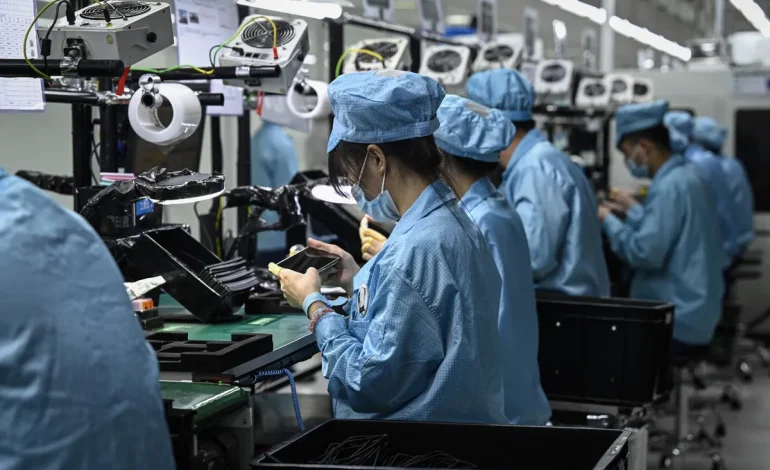As the United States faces a complex trade landscape, small- and mid-size manufacturers are leveraging new opportunities to expand both domestically and internationally.
Tariffs, along with federal initiatives and global trade shifts, are catalyzing a resurgence of interest in reshoring manufacturing processes, signaling potential for a new era of American-made products.
America is home to over 500,000 small- and mid-sized manufacturing businesses, ranging from CNC machining and injection molding to 3D printing and sheet-metal fabrication. These companies, which are deeply rooted in their local communities, are not only critical to the nation’s economic fabric but also significant contributors to the GDP.
The reshoring trend, which gained momentum following the COVID-19 pandemic, is further supported by federal legislation such as the Infrastructure Investment and Jobs Act and the CHIPS and Science Act. This reshoring shift is also fueled by the ongoing tariffs imposed on goods imported from countries like China, prompting many companies to reconsider their supply chain strategies.
According to Xometry, a digital marketplace for custom manufacturing services, nearly half (42%) of manufacturing CEOs have already reshored their facilities, with an additional 19% planning to do so in response to the ongoing tariff challenges. The company has tracked this trend over the past two years through its “American Manufacturing Resurgence” polls, conducted in partnership with Zogby Strategies.
Xometry’s CEO, Randy Altschuler, emphasizes that American manufacturers are well-positioned to capitalize on this opportunity.
“Our platform helps over 68,000 buyers of custom-manufacturing services connect with more than 4,375 suppliers, offering instant pricing, lead time information, and critical access to America’s manufacturing capacity,” Altschuler says. “This helps companies remain agile and resilient in a rapidly evolving market.”
Xometry’s platform has played a crucial role in facilitating this reshoring movement, generating $1 billion in revenue for US manufacturers over the past five years. This represents a significant boost to the sector, as more companies invest in new technologies and workforce training to meet the demands of an increasingly tech-driven industry.
According to a recent survey by Xometry, 70% of manufacturing CEOs are embracing emerging technologies like artificial intelligence (AI) and automation to enhance operational efficiencies. Of those investing in AI, nearly two-thirds (63%) believe that these technologies will be transformational for their businesses.
This technological shift is not just about upgrading equipment—it’s about preparing the workforce for the next generation of manufacturing.
“The manufacturing sector is increasingly synonymous with high-tech innovation,” Altschuler says. “At Xometry, we’re helping to re-engineer supply chain ecosystems, enabling manufacturers to compete on a global scale.”
Despite the complexities of US tariff policy and shifting international trade relationships, there is a clear trend toward reshoring, and many believe this could mark the beginning of a manufacturing renaissance in the US However, realizing this potential will take time and sustained investment, both in technology and workforce development.










The latest news in your social feeds
Subscribe to our social media platforms to stay tuned